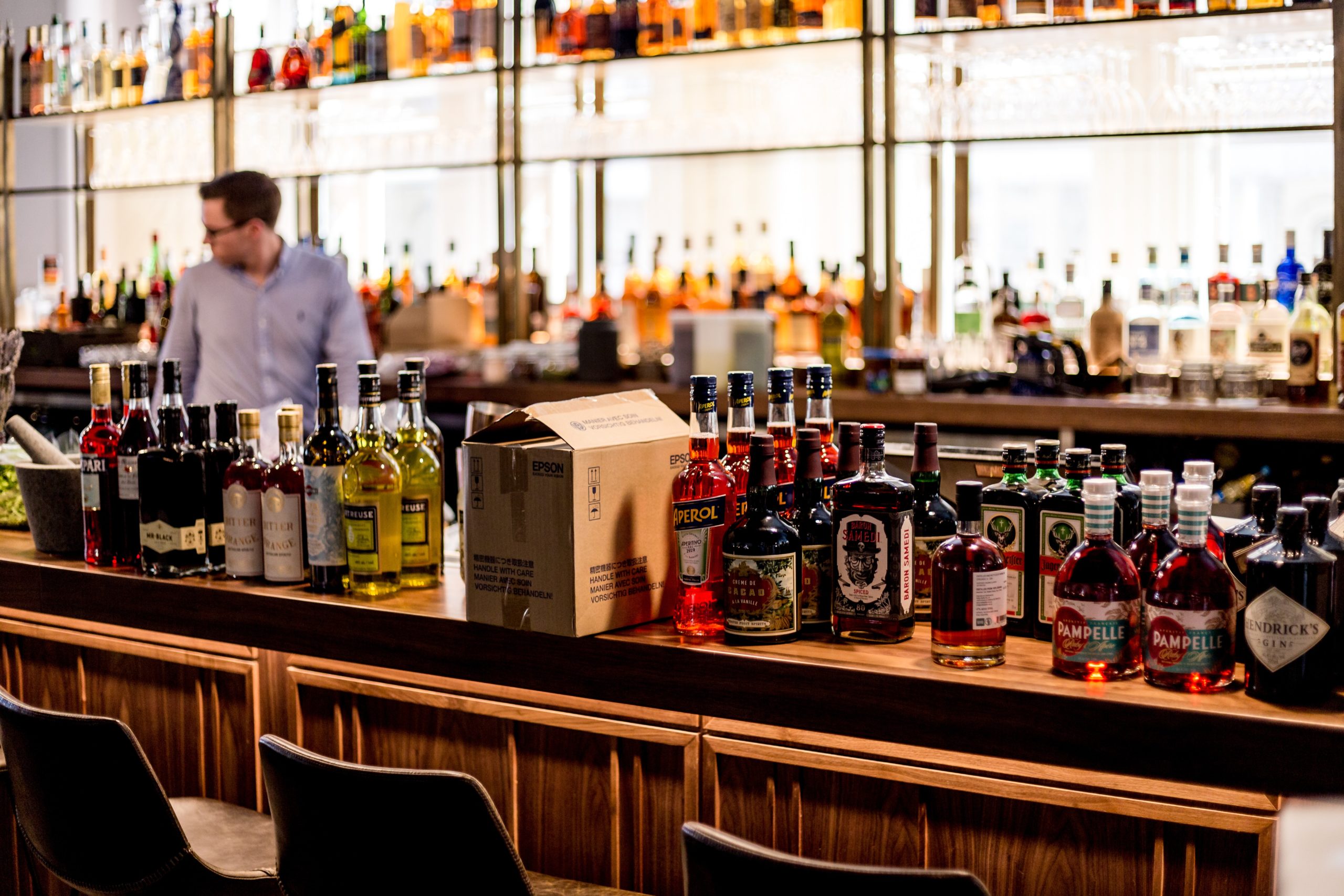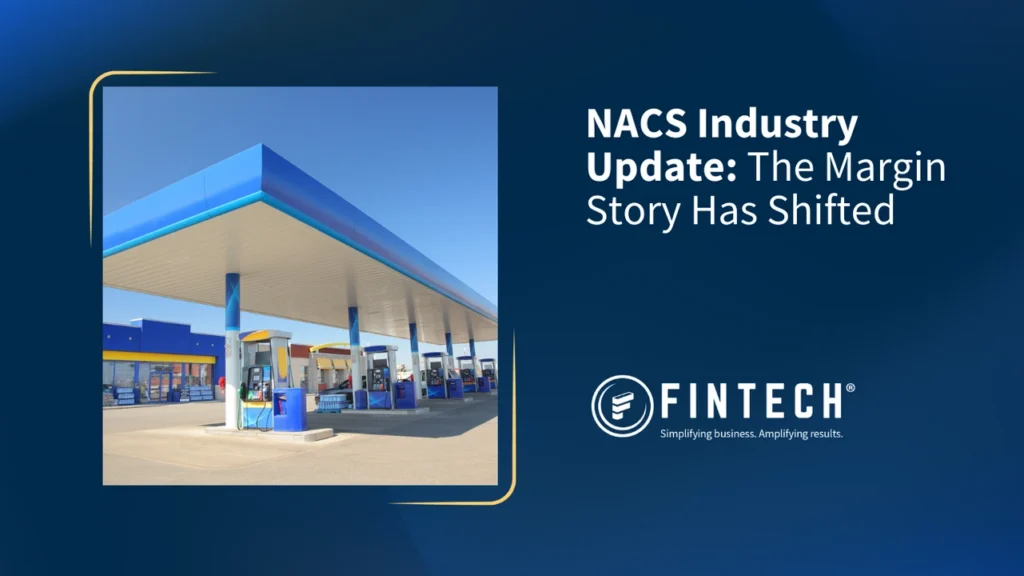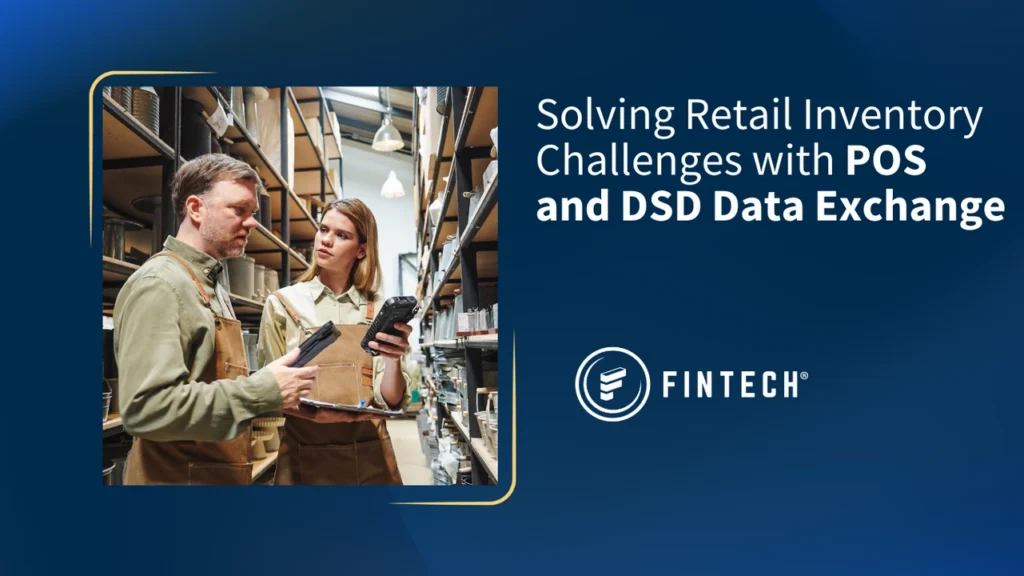Now that 2020 is in our rearview and clearer skies are on the horizon, the entire hospitality industry has been left to take a deep breath and set its sights on new strategies for success in the years to come. With three authorized COVID-19 vaccines, it’s expected that nearly one-third of the U.S. population will be vaccinated by the end of the month. By the end of May, there is expected to be enough supply for every American who wants one. But as we continue to navigate the pandemic’s long-term effects and the impact of changing regulations, COVID vaccinations, and evolving customer expectations, agile strategies for success will be more important than ever for hospitality operators. During our latest panel discussion sponsored by the North Carolina Restaurant and Lodging Association (NCRLA), Fintech learned how four North Carlina operators are approaching these new plans and what areas of business the pandemic has transformed for good.
Check out our conversation with panelists Erin McMullen with Durham Distillery, Sean Lilly Wilson with Fullsteam Brewery, Callie Murray with Mac’s Speed Shop, and Kelly Brown with The Cardinal Hotel to learn more.
I want to get started today by acknowledging the light at the end of the tunnel because there is one! It seems we’re on a locomotive moving towards something pretty close to the life we had before the pandemic, which has to be queuing a lot of strategy and planning in your minds as hospitality operators. Given your state and local restrictions at this point, when do you think your on-premise business will return to something like normal?
Erin: For us, it’s been a little different because we’re a distillery, so we have two areas of service. Our sales have actually gone up in some areas because we’re sending product in-state to the ABC stores and out-of-state for bottle sales. In combination with that, we have on-premise service in our tasting room, where we would normally have tours and tastings for guests, and our cocktail bar, the Corpse Reviver, which just opened last year beneath the distillery. So, things didn’t change too much in some ways, and then in other ways, they changed dramatically. Right now, we’re concentrating on making guests comfortable coming out again and have installed a hospital-grade air purifier, we’re taking temperatures, we have sanitizing stations, and we’re spacing things out. As far as the timeframe, it’s really hard to say because it’s dependent on people’s comfort level. We’re usually thinking about the NCAA March Madness tournament in March, but it’s almost impossible to think about being in a crowded bar watching basketball games right now. It will be baby steps, and there are many stages we’ll have to go through to get back to where we were.
Callie: From a planning standpoint, we’re looking at mid-to-late-summer. Our hope, to your point, is that with the vaccine being readily available, people will get their vaccine and be more comfortable with going out. We’re very fortunate that all our locations have wonderful patio space and open-concept layouts, so that’s already been a saving grace as the weather warms up. We’re already starting to see people return more now.
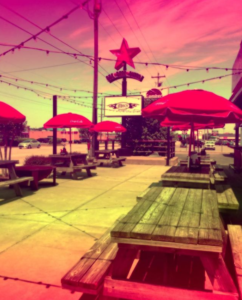
@macspeedshop on Instagram showing off their patio seating.
Sean: I think we’re going to see a psychological change, as Erin alluded to. You know it’s funny, I’m looking at my laptop sitting on a stack of German Biergarten tables, and I just don’t know that we’ll put these into circulation in the same way. Before, we were that packed place where people would share tables with strangers to watch games and drink beer. As we move forward, people will want to return to normal, but we also recognize that we should be safer as a society. Even with the vaccine and shaking off the ghosts of the last year, Durham is pretty cautious and very much respecting the science, so I don’t know that we’ll see a return to “normal.” We also have many decisions to make on our own about what our space does moving forward. We used to show all the games and have live music, but we did away with that when the pandemic hit, so it’s really redefined who we are.
Kelly: I think the return to business will follow the vaccine trends – folks have to be comfortable and have to feel safe. We’re very fortunate to represent a brand that takes all the safety and cleanliness protocols seriously, and we’ve built confidence in the community. As far as our on-premise dining is concerned, we don’t see too much of a decline. Despite the capacity restrictions, people are coming in for dinner. Of course, the bar business has been pretty drastically impacted, but the dining room is faring well. From a hotel perspective, we think it will be quarter four, if not 2022, before we see the same levels that we had pre-pandemic. We’re really banking on the return specifically of group and corporate bookings.
As we went into the pandemic, it became almost necessary for business operators to adopt technology to help guide strategy. Tell me about the technology you adopted, which ones are here to stay and will be with you forever, and which ones do you think you might not need anymore?
Kelly: Some of the technology implementation has been long overdue, pandemic aside. We just rolled out digital check-in, which provides completely contactless check-in for our more frequent guests and helps eliminate the awkward exchange of payment behind the plexiglass at the front desk. We also now have a text messaging platform, which allows us to communicate more frequently with our guests, even if they aren’t on property. Those will both be here to stay. We’re also going to have HVAC modifications coming our way. Similar to the way 9/11 changed things for hotels, there will be some things that never go back to the way they were before when it comes to technology. Things that help mitigate some of the virus spread or encourage air purification in a different way. Our sister hotel in Charlotte, called Tryon Park, has just installed a state-of-the-art air cleaning and purifying system that does all of that and removes any irritants or harmful viruses from the guest rooms and public restaurant areas.
Sean: QR Codes were the laughingstock of technology for many years, but we found strong adoption of them now and actually replaced a mural in our front area with three large QR codes. We definitely noticed that a younger generation, particularly the Duke students, had an increased adoption and comfort level utilizing the QR technology. They can queue up the menu and start a tab, but it still relies on the bar’s social interaction, which is really important for us. We’ll be building on that for our Boxyard expansion but will still have a strong people component. As for what goes away, for us, I think curbside. We’re not a big to-go space. We’ve also had great success with hosting virtual events – from beer tastings to corporate or alumni events – which have been really fun, but we’re already seeing a decline in those as people are more eager to get together in person. I’ll miss those a little bit but getting together safely in person is also fun.
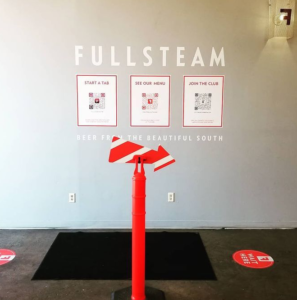
From @fullsteambrewery on Instagram: “Guiding you every step of the way. To start a tab, contact-free, check out the Arryved app.”
Callie: We were right in the beginning conversations in March last year about bringing on delivery partners, so we just ended up having to move much more quickly on that and turned it around in about a week. From beginning conversations to live in the restaurants. Not only did we sign on very early with Doordash and Postmates, but we integrated with a technology partner that sends the orders from the different platforms directly to our printers in the kitchen, which takes human error out of it and speeds up service. That’s definitely here to stay for us because I don’t think delivery is going anywhere. We also did the QR codes, which were a challenge at first because they didn’t exactly fit the Mac’s Speed Shop biker-bar, BBQ brand, but we went with it because people wanted another option instead of paper menus. I don’t think those are going anywhere anytime soon either. From an operational standpoint, we have all new touchless technology in the locations, sinks, soap dispensers, and paper towel dispensers in the bathrooms, which are all permanent.
Erin: We’re in the same boat as everyone else with the QR codes, but that will probably be something that goes away once we can bring back our actual menus. Along with that will be curbside service. We’ll still offer online ordering for pickup of our bottled products, swag, and bar accessories, but we want to encourage customers to actually get out of their car and come inside to checkout. Another thing we’ve done, which we can thank NCRLA for, is cocktails to-go from the Corpse Reviver bar. As we start to look towards full capacity again, cocktails to-go will also go away, but our cocktail kits, which work with our bottle sales, will stay. It’s going to be a give and take of everything.
In some ways, technology can take away from face-to-face interactions with your customers. How are you going to keep the technology but balance it with your customers’ desire for interaction after a lengthy lockdown?
Erin: We’ve been really lucky to be able to balance our patio seating and in-house service with our to-go and curbside operations. Interestingly, by offering online ordering and cocktail kits, we’ve gotten many people who are new to Durham Distillery to welcome into the gin family!
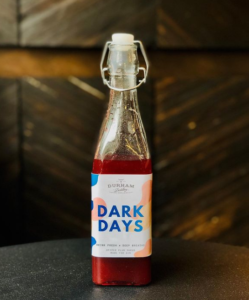
A perfectly curated cocktail kit from @corpserevivercocktailbar on Instagram.
Sean: We think once the bar scene returns, people will self-select if they want that interaction or not. We want to meet people where they are, so for us, that means walking the room and gauging if people want to talk or interact or maybe still want their space. It will be a bit of a challenge, but we’ve got to put ourselves out there.
Kelly: I think the human-to-human connection is going to be that much more important. The transaction is still going to happen across the technology, but our teams’ conversations with the guests coming through need to be real and genuine. Ultimately that’s what people are going to crave.
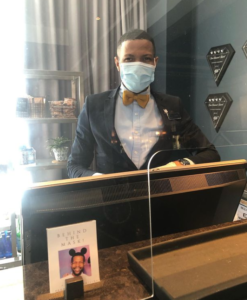
@thecardinalws showing service done right, with a friendly reminder of who is smiling behind the mask at their front desk.
Callie: Over the last year, we brought on a Director of Training and a Director of Operations to increase the hospitality of those guests who maybe haven’t been out in an entire year. It’s about making their experience even more special than it would have been pre-pandemic since it’s going to be a celebration. We recently got tagged in a post from a woman who had just gotten her second vaccine shot, and she chose to have her first meal out in public since March of last year at Mac’s Speed Shop.
As you welcome guests back to your locations, it’s almost like planning a big welcome back party! What are you thinking about, and how are you taking the guest experience up a notch to welcome them back?
Sean: We had some challenges early on because we spelled out the safety protocols so specifically to build customer confidence, but what ended up happening is that some of our servers almost became too robotic with it. While we don’t want them to start getting overly conversational (because we need to be authentic and maximize efficiency and customer service), we want to have a balance. To find that, we’ll be doubling down on training so our staff can convey information about our products and have real, genuine interactions.
Erin: It is about elevating the customer service and establishing a safety comfort level for guests while balancing conversation and interactions. These different things are coming into play that weren’t an issue before, like how far apart we’re standing or how long someone is lingering for a conversation. We’ll continue to push customer service and training for our staff to be knowledgeable about all our products, that way they can confidently welcome guests back to the space and make them feel good about coming out again.
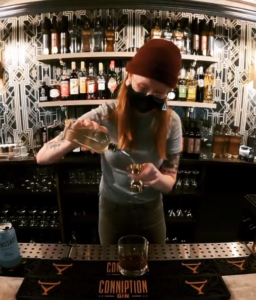
Safe, friendly customer service on full display @corpserevivercocktailbar on Instagram.
Kelly: So, as everyone has said, people are getting ready to come back out, but what we haven’t talked about is what that does to expectations. Guests have been waiting to get out for a year, and they’ve chosen you – so what pressure to deliver in an exceptional way! Our baseline will start by delivering consistently across the board and mitigating any kind of service failure as much as possible. To exceed, we’re building that human connection. We have fewer guests, so we can remember their name as they’re entering or exiting the building or walking up to the host stand for breakfast. That’s the kind of thing that makes us special and is where we’re driving our focus.
What about elevating that welcome back experience for your staff?
Kelly: They’re coming back to different jobs – positions are not the same as pre-pandemic and lines of responsibility are more blended now. In a lot of situations, the workload is probably more significant than before, but I think the pandemic brought our team closer together. If you think back to April or May of 2020, people weren’t interacting with anyone, so it naturally built some comradery that we wouldn’t have had if we didn’t go through this together. Our leadership team went from 120 employees to about 21 at the lowest, but that core crew has never been tighter. Welcoming our teams back to an environment that is so close is equally inspiring because we’re all on one mission to build this back up to what it was.
I want to switch now to the staying power of to-go. I know we’ve touched on it, but will you continue to advertise, market, and incentivize your customers to order to-go, or is that something you’ll let find its natural balance without pushing?
Callie: Mac’s Speed Shop is BBQ, so to-go was a hidden gem for us because BBQ travels really well. If I had to take a guess, pre-pandemic to-go only was about 10% of our business, but now, 2021 numbers are showing that it’s up to about 30%. In just looking at these numbers, to-go will likely remain ingrained in our service, but it won’t be at the forefront of marketing messaging. Now that people know they can order to-go or order bulk orders for catering or donations to hospitals, backing off the messaging a little bit will be just fine. Instead, we’ll have more room in our marketing to focus on welcoming people back to in-person events like live music.
Erin: I don’t think we’ll push it, but it will definitely remain an option at least through the end of the summer because of the convenience it brings our guests. There are plenty of people who stop by on their way home from work or are maybe starting to socialize in larger groups who want that convenience still, so to-go will stick around.
Sean: I suspect our to-go and curbside will start to wane because we didn’t really build our food and our service systems for to-go. We made it work, but we’re not going to put a ton of energy into it at our Rigsbee brewery. Instead, we’ll focus more on community and potentially doing events or catering. Our new Boxyard location is being built for to-go, with food that’s a better fit and dedicated parking spaces that are to-go pickup only, so it will certainly be a focus there.
When I first started in this industry years ago, I was told that alcohol is recession-proof – people drink when times are good, and they drink when times are bad. I think now it’s safe to say that alcohol is pandemic proof too! The demand hasn’t decreased during the pandemic, and you’ve probably had to be creative to what products you’re offering and how you’re getting them to consumers, so with that said, to what extent will you keep your innovation and pandemic strategy moving forward?
Sean: I used the word psychology early on, but I think we’re going to see how this thing plays out moving forward, particularly with seasonal beers and people’s recollection of challenging times. We brought back a beer that we released a year ago, and it tasted like that time – and honestly, it wasn’t a great memory. So, we have to adjust and see how people respond to things that circle back from last year. We are noticing what I call a bifurcation of selling, where people either gravitate towards classics or really on-trend, popular hot styles. Everything in the middle, which is really where the innovation is, will be a challenge as people figure out how risk-tolerant they are.
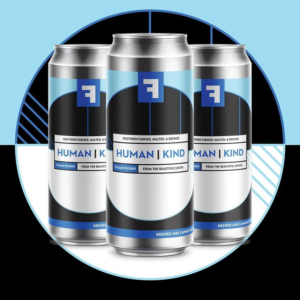
@fullsteambrewery leading innovation with their Human Kind beer, a crispy, dry-hopped Pilsner brewed with Epiphany Craft Malt and Carolina Gold Rice, German hops, and above-average carbonation.
Kelly: What we learned during the pandemic is that people will come for a drink no matter where it’s being served. We activated our patio through December and put out four different dining globes – they started as winter wonderland globes and have transitioned through the seasons since then. In the first month alone, these globes brought in an additional $50,000 in revenue to the restaurant! We also used our top-floor executive offices as a pop-up Grinch bar, which had limited capacity but gave people something to do after dinner, with a really fun theme. Both of these were wildly successful, and we discovered that people will come to enjoy it if you develop a reason. We’re already starting to make a plan for what we’ll offer this year and in the future.
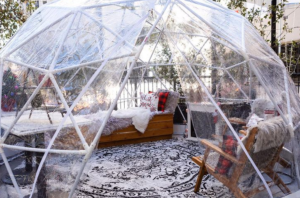
Beautiful outdoor globes for enjoying a drink or two at @thecardinalws.
Erin: Our cocktail kits have really been popular for us. It gives people the ability to be a mixologist in their own home without being intimidated by everything that comes with mixing a high-quality cocktail. They’re getting to know our products and learning how to be a bartender! We’ll keep ensuring the comfort zone for the bar downstairs while offering a new spring cocktail menu. We want the Corpse Reviver to be your classic gin bar, and we’re hoping that as time moves forward, we can get to go back to some of our pre-pandemic ideas like mobile martini carts.
Callie: During the shutdown and now during 50% capacity, we weren’t too focused on to-go alcohol because the to-go food was so successful. Instead, we took the time to streamline our cocktail menu and make all our offerings better, fresher, and easier for our bartenders to make, helping improve the speed of service. We’ve already seen our liquor sales skyrocket in response to the changes even with 50% capacity. At our Southend concept, we also have cocktails on tap now, so that follows along the same lines of increasing speed of service and offering something new. Those will definitely stick around!
Without a doubt, this pandemic has left us socially distanced yet unified in our common cores and desires, especially in the hospitality industry. Without the ability to roll your voices up to the North Carolina Restaurant and Lodging Association, there wouldn’t have been the same impact in effecting change. What does this advocacy mean to you?
Kelly: I want to first and foremost say thank you to the NCRLA. We are so fortunate to be represented by an organization that cares so deeply about what we do every day. They’ve done a phenomenal job with communication up to the legislatures on behalf of our needs and down to the different businesses and representatives in the communities. Even just yesterday, I first heard the news about the vaccine being pushed up in an email from the NCRLA. They’ve done a great job, and I have nothing but gratitude to them.
Sean: I’ll add to that shoutout, of course, to the NCRLA and the North Carolina Craft Beer Guild who have advocated on our behalf. It’s a sensitive topic with the difference between breweries and bars, but both organizations focused on protocols and helping us get to this point where we’re able to open safely. They’ve both done a wonderful job balancing science and service.
Erin: Again, thank you to the NCRLA. Having advocates lobbying for or against legislation in this industry is huge. If you think back to even the #freethemimosa movement they did that allowed bars and restaurants to serve alcohol before noon on Sunday, that was a huge thing for this industry. They pushed just as hard for the cocktails to-go, which obviously provided extra income to a lot of venues during the pandemic. They do so much for this industry, and we’re all really thankful for that.
Callie: From a communications standpoint, the NCRLA has been incredibly responsive. They’ve clarified information, let us know what we can and can’t do, and walked us through all the details of operating safely. It’s been incredible for all of us to come together with the NCRLA for various opportunities to give back. I’m incredibly proud to share that Mac’s Speed Shop has fed over 10,000 people in need in 2020. I’m just really proud to be a part of this industry.
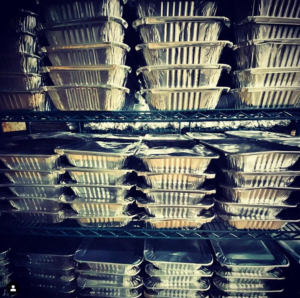
@macspeedshop teaming up to donate over 200 Thanksgiving meals to families in need.
It was an honor to host this engaging panel; we learned so much great information! Ready to watch the full conversation? Click here to view the webinar recording and even listen to a few bonus questions.

